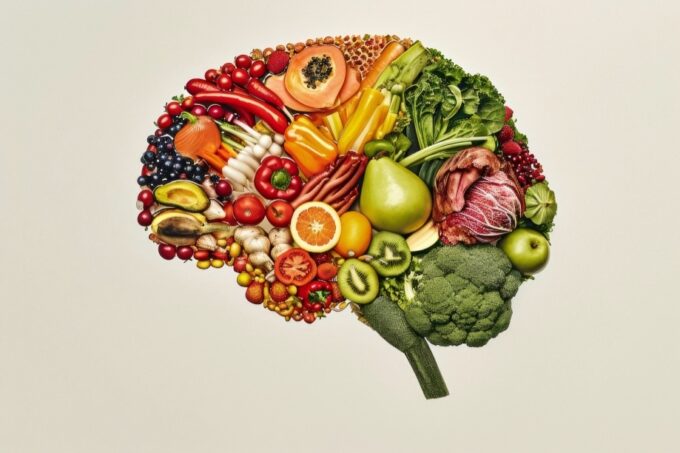Introduction
In recent years, researchers have increasingly explored the fascinating relationship between Nutrition and Neurodisability. While genetics, environment, and medical interventions all play crucial roles in neurodevelopment, diet is emerging as a powerful, yet often underestimated, factor. For children living with neurodisabilities, nutrition is not just about growth — it can directly influence cognitive abilities, emotional regulation, and overall quality of life.
Because the developing brain is remarkably sensitive to the availability of nutrients, the type, timing, and quality of food a child receives can make a significant difference. Therefore, parents, caregivers, and healthcare providers are paying closer attention to the connection between Nutrition and Neurodisability as part of a holistic approach to care.
Understanding Neurodisability and Its Challenges
Neurodisability refers to a group of conditions caused by brain and nervous system impairments, which can affect movement, learning, communication, and behavior. This includes cerebral palsy, autism spectrum disorder, developmental coordination disorder, and other neurodevelopmental conditions.
Children with neurodisabilities often face specific dietary challenges, including:
-
Difficulty swallowing (dysphagia)
-
Selective eating or sensory-based food aversions
-
Gastrointestinal problems like constipation or reflux
-
Increased energy demands due to muscle spasticity or movement difficulties
These challenges highlight why Nutrition and Neurodisability must be addressed together, rather than separately, in any developmental care plan.
The Brain–Food Connection
The human brain is a high-energy organ, using up to 20% of the body’s energy at rest. During childhood, when the brain undergoes rapid development, the need for essential nutrients is even higher.
Key nutrients that influence brain development include:
-
Omega-3 fatty acids – crucial for building cell membranes and supporting communication between brain cells.
-
Iron – essential for oxygen transport and neurotransmitter function.
-
Zinc and magnesium – involved in nerve signaling and mood regulation.
-
B vitamins – important for energy production and cognitive performance.
Without these nutrients in adequate amounts, the brain’s ability to develop and function optimally can be compromised. Therefore, focusing on Nutrition and Neurodisability means creating a diet plan that supports not only physical growth but also neurological health.
How Diet Can Influence Neurodevelopment
Although diet cannot cure neurodisabilities, it can positively affect outcomes by supporting the brain’s plasticity, improving energy levels, and enhancing cognitive function. Several studies have shown that certain dietary interventions can help manage symptoms or reduce the severity of challenges faced by children with neurodisabilities.
For instance:
-
A balanced diet rich in fresh fruits, vegetables, whole grains, and lean proteins can help stabilize mood and behavior.
-
Adequate hydration supports concentration and reduces fatigue.
-
Specialized feeding programs can address chewing and swallowing difficulties, ensuring adequate nutrient intake.
Moreover, for children with conditions like ADHD or autism, reducing artificial additives, refined sugars, and overly processed foods has been linked to better attention and reduced hyperactivity.
Practical Tips for Parents and Caregivers
Supporting healthy eating habits in children with neurodisabilities requires patience, creativity, and sometimes professional guidance. Here are some practical steps:
-
Start small: Introduce one new food at a time to avoid overwhelming the child.
-
Make it appealing: Use shapes, colors, and textures to encourage interest in food.
-
Consult experts: Work with dietitians, occupational therapists, or speech therapists for personalized advice.
-
Use fortified foods, especially for children who have limited diets due to sensory preferences.
-
Encourage hydration: Offer water in fun bottles or cups to make it more appealing.
By making small yet consistent changes, parents can significantly improve their child’s nutritional status, positively influencing developmental outcomes.
The Role of Specialized Diets
Some children with neurodisabilities may benefit from specific dietary approaches, such as:
-
Ketogenic diet – Often used in epilepsy management.
-
Gluten-free and casein-free diets – Popular among families of children with autism, though evidence varies.
-
High-calorie diets – For children with increased energy needs.
It’s essential to remember that these diets should only be implemented under professional supervision to prevent nutrient deficiencies or other health risks.
Why Early Nutritional Support Matters
The earlier nutritional support begins, the more it can influence developmental pathways. Early interventions help:
-
Prevent growth delays
-
Reduce hospital admissions due to feeding complications
-
Improve participation in learning and therapy sessions
This is why addressing Nutrition and Neurodisability from infancy, and even during pregnancy, can be a game-changer in long-term outcomes.
Conclusion
When we think about developmental care, we often focus on therapy sessions, medications, and educational support. However, Nutrition and Neurodisability are deeply interconnected, and dietary support can be just as impactful. By working with experts like Dr. Vivek Mundada, families can ensure that children receive the nutrients they need for optimal growth and neurological health.
Ultimately, when it comes to child development, nutrition, and pediatric neurologists in Dubai, a collaborative approach involving medical professionals, dietitians, and caregivers can unlock new possibilities for improving quality of life.
FAQs
1. Can diet alone improve neurodisability symptoms?
While diet cannot cure neurodisabilities, it can support brain health, improve energy levels, and help manage certain symptoms when combined with medical care and therapy.
2. Which foods are best for brain development in children with neurodisabilities?
Foods rich in omega-3 fatty acids (like salmon), leafy greens, berries, eggs, whole grains, and nuts are excellent choices for supporting cognitive function.
3. How can I help my child with a neurodisability eat better if they have sensory issues?
Introduce new foods slowly, mix them with familiar favorites, and experiment with textures and colors. Professional guidance from an occupational therapist or dietitian can also make the process easier.



